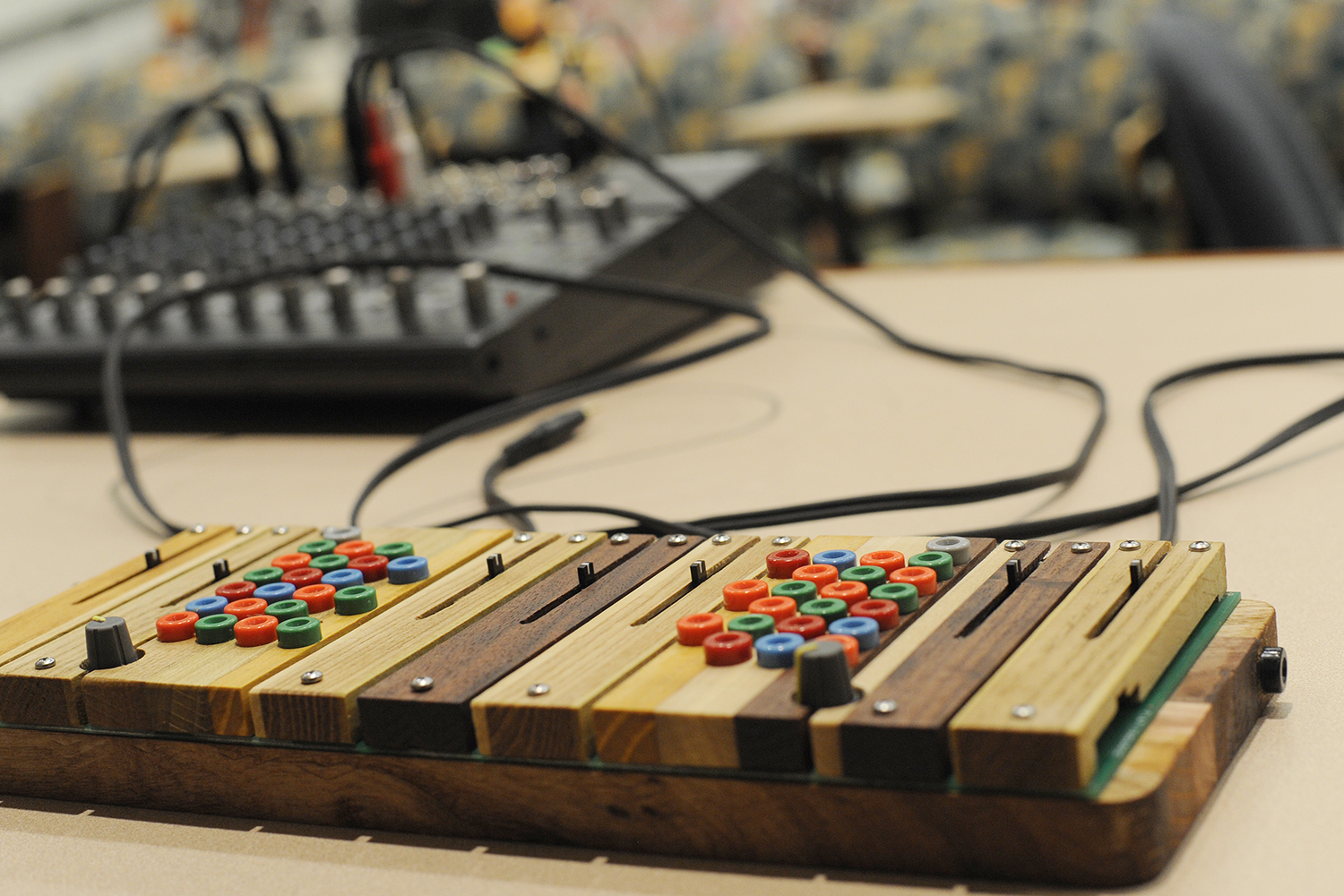Graduate Student Blasser Hand Crafts Analog Instruments
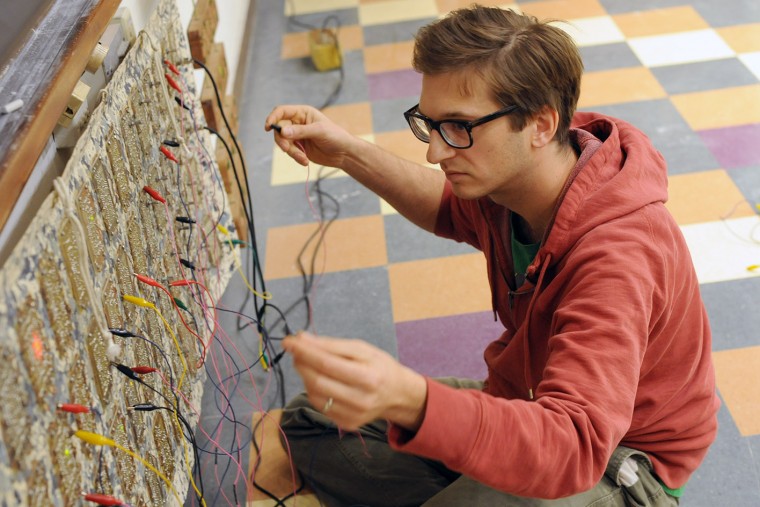
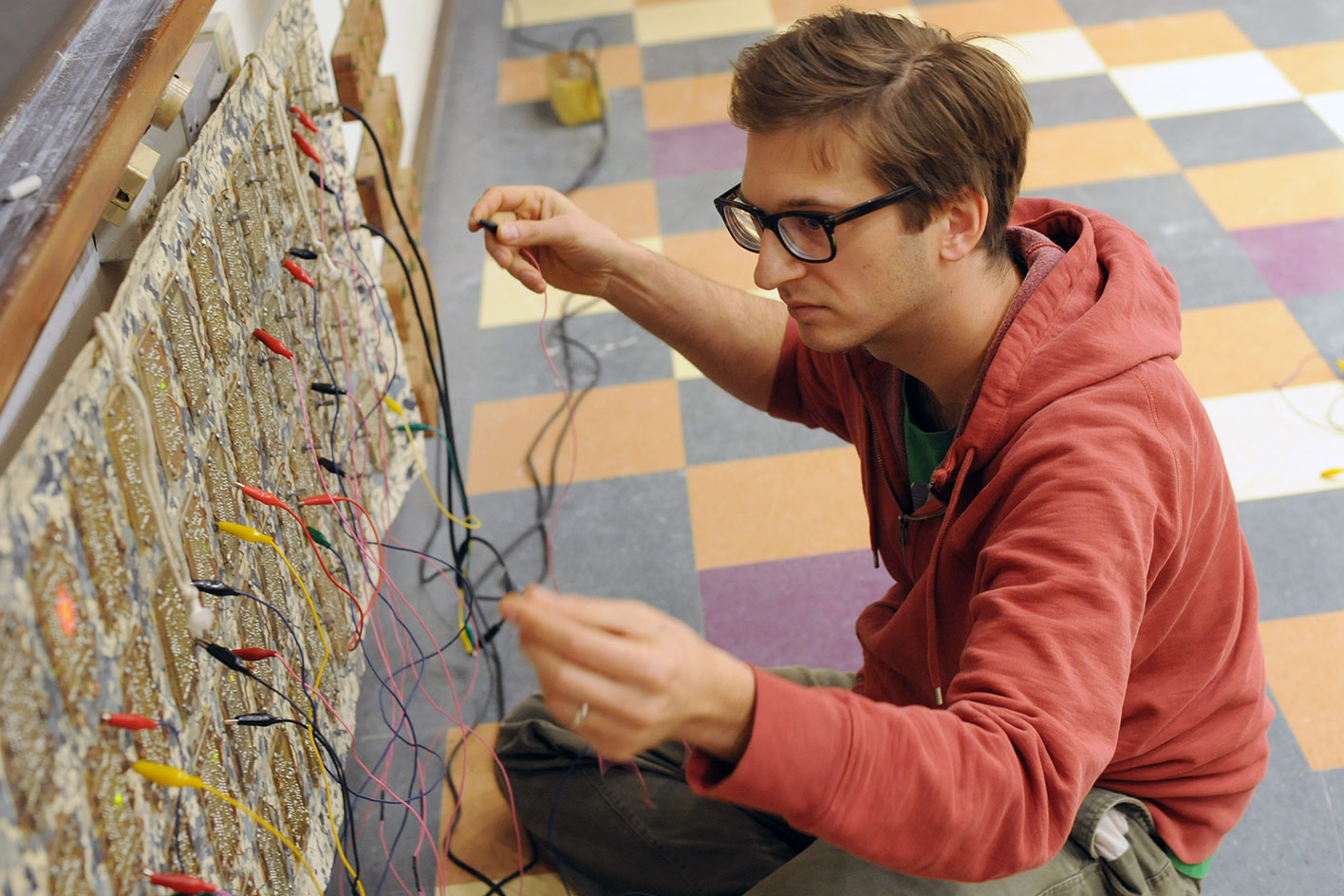
#THISISWHY
In this Q&A, we speak with Peter Blasser, a music graduate student.
Q: What was your first experiences with music? When did you decide that music would be your life work?
A: I was in elementary school in the 1980s when music programs were still part of the public school curriculum. I remember that those music classes were not very noteworthy at the time. In middle school I took a wood shop class and liked working with the tools. After taking classical civilization classes, I started to triangulate all three — I wanted to work with wood to make ancient Greek instruments to see what they sounded like. The first instruments I decided to recreate were ancient stringed instruments.
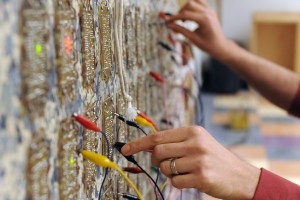
Q: Where did you complete your undergraduate studies?
A: I went to Oberlin College. I initially went as a classics major, but still had a passion for making classical instruments. Oberlin had a conservatory for music, and they offered introductory courses in electronic music. I started to use electronic music to model and tune classical instruments. I also was able to take a course in analog music, learning about transistors and electronics, and how they could be used to make music. This caused me to combine wood and analog electronics, which is all about the flow of the transistors.
Q: What did you do after graduating?
A: I purchased a home in Baltimore about 10 years ago as a space to work on my art. Fixing up the house was an artistic experience in of itself. I also started my own business where I sold analog instruments. I wasn’t making much money, so I spent a lot of time working on poetry, thinking of ideas for my business and exploring my philosophy. I also toured with my instruments, but didn’t like how much I had to promote myself and push my brand.
Q: Why did you choose Wesleyan for your graduate school?
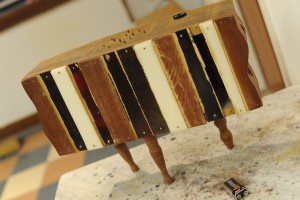
A: I decided to attend Wesleyan after developing a friendship with Ron Kuivila, chair of the Music Department. After graduating from Oberlin I never thought I would return to school, but I found that I enjoyed giving lectures and helping other students make their instruments. I also like how Wesleyan’s music program, and art program in general, is experimental — there are no prejudices from students about what music should “be” like. The different departments are porous, there is mixing between different mediums and styles. This enables me to sit with undergraduates and help them make a piece that the student will own, with a shared experience. This made me realize that I enjoy teaching, and in order to become a professor, formal education is required.
Q: What are your plans after Wesleyan?
A: Right now my analog electronics business, which are more “alternative” analog electronics, is booming right now. I think that the limitations of analog transistors add a bit of structure that artists can explore, rather than pure digital which has infinite possibilities. These limitations help focus artists, which is causing analog to be an attractive medium.
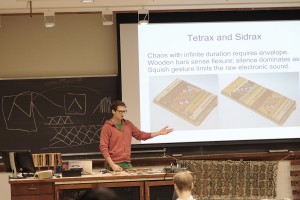
That being said, I am not going to rush into anything. I know I didn’t like touring, and ultimately I want to be able to provide for my family. If my business allows me to do that, then that is what I am going to do. I am open to working towards a Ph.D. in the future if an opportunity arises, but I’m not going to push for that path.
Q: What would you like to accomplish with your projects and music?
A: I don’t consider myself an artist, but more of an artisan. My first and major goal is to be able to provide for my family. I am not looking for my work to conquer the world; I want to remain true to my poetic and philosophical ideas.
Q: What are your thoughts on the Graduate Student Services?
A: The graduate student office is great! Very supportive. They encourage me to do lectures and host performances.
Q: What are your other interests outside of music and your projects?
A: Spending time with my children: Kirito who is 4-years-old, and Hakuto who is soon to be 1. I enjoy helping them explore the world, and taking them fishing.
